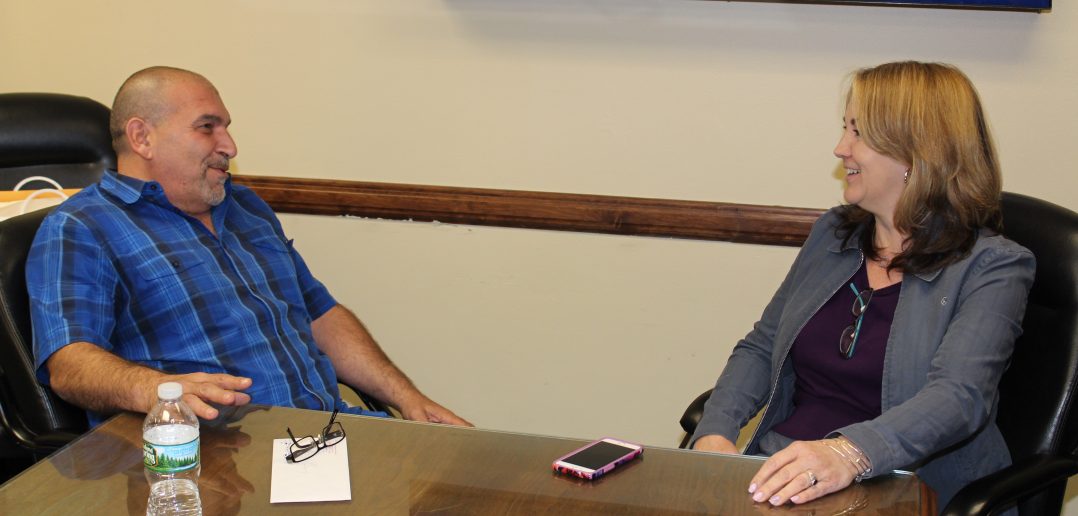MINEOLA — A new Nassau County Dispatcher Unit contract will help protect the unit’s members on the job, and improve public safety.
The county’s preoccupation with balancing its budget had superseded its concern for public safety. In 2010, staffing was at its optimum, with 190 trained dispatchers. After six years of county cutbacks, staffing totals bottomed out at 141 dispatchers.
That decision caused a collective outcry from Nassau County residents, who approached the media with their concerns after two well-publicized incidents with callers who lacked a timely response.
Among the contract’s most important points is a Memorandum of Understanding (MOU) that will include minimum staffing for each shift and will go a long way toward relieving understaffing. CSEA’s 911 Dispatcher unit is the only CSEA unit to have an agreement of that kind.
“I’m really proud of Jerry (Laricchiuta, Nassau County Local president) and this local for that one. They really stuck to their guns and didn’t concede on that,” said Gary Volpe, the local’s Communications Bureau Unit president.
“Because minimum staffing is in our memorandum of understanding, we have the golden key,” Volpe said. “That language is in there for life.”
Nassau County had more than 1.3 million residents as of 2013 and receives more than 1 million calls every year, making it imperative that the proper resources are available to serve so many people.
Those resources and the new contract didn’t come without a fight — seven years, in fact.
While a return to the 2010 staffing numbers is not expected for some time because of the time it takes to hire and train dispatchers, the unit negotiated two extra dispatchers on each shift, effective immediately, and they will receive lifesaving training to help callers in need.
“It has really helped with morale,” said Susan Chodkowski, the local’s Communications Bureau Unit representative. “There’s a better feeling among the staff. They feel like they can finally take a breath.”
For the first time, unit members will also be taking an active role in ensuring proper training for dispatchers.
Chodkowski and Volpe credit CSEA-provided classes for helping them gain the knowledge to attack their issues with management head on.
“I have to give kudos to (CSEA’s) Labor Education Department because I learned a lot about leadership skills and taking the initiative in the workshops,” said Volpe. “Those are the things that help you be a good unit and local president.” Members are generally thankful for our union’s actions and leadership.
“They’re saying, ‘We don’t know how you did it,’” said Chodkowski. “Even people who were anti-union came around. They’re really thankful for what we’ve done.”
— Wendi Bowie




